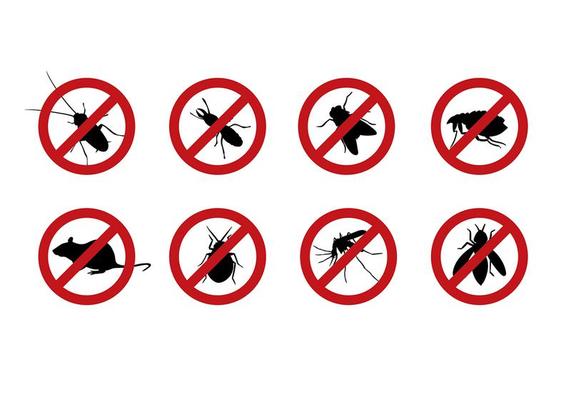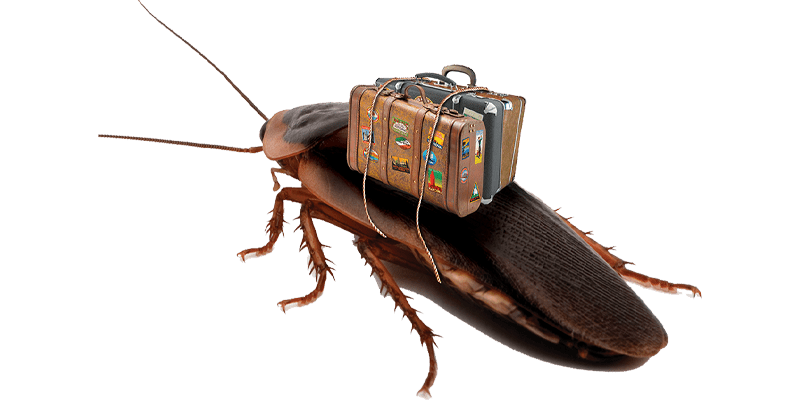Cost-effective and Reliable Exterminator in Port Charlotte for All Your Pest Control Issues
Reveal the Value of Bug Control in Preserving a Healthy Environment and Therapy Methods

The Role of Parasites in Environments
Pests, commonly viewed exclusively as hassles, play a diverse duty in ecological communities that is important for preserving eco-friendly balance. They add significantly to different environmental procedures, consisting of pollination, nutrition biking, and parasite control. For instance, lots of insect varieties, such as butterflies and bees, are important pollinators for a large range of plants, which in turn supports biodiversity and food production.
Furthermore, bugs offer as target for countless killers, producing a critical web link in food internet. This connection makes sure the survival of different species and aids manage populations within environments (Termite treatment Port Charlotte). In addition, decomposer parasites, such as particular beetles and fungis, contribute in breaking down raw material, thus enriching dirt and helping with nutrition recycling.
Conversely, while pests can be helpful, their overpopulation or invasion into non-native environments might interrupt these environmental features. This intricacy highlights the importance of understanding parasite characteristics, as effective pest monitoring techniques should consider both their eco-friendly functions and potential impacts on human tasks. Balancing pest presence while decreasing injury is necessary for protecting the integrity of ecosystems and making certain agricultural productivity.
Wellness Risks Connected With Bugs
The presence of parasites in different environments expands beyond their ecological functions, as they also present significant health and wellness risks to animals and human beings. Many parasites, including pests, parasites, and rats, are service providers of illness that can have significant health effects. Rodents are recognized to transmit hantavirus and leptospirosis, both of which can lead to serious respiratory and renal problems, specifically.
Pests such as ticks and mosquitoes are notorious for spreading out vector-borne conditions like jungle fever, dengue fever, and Lyme disease. These illnesses can cause high morbidity and mortality rates, particularly in prone populaces. In addition, parasites like bedbugs and roaches can exacerbate allergies and asthma, adding to breathing issues in individuals, particularly those with pre-existing conditions.
Additionally, the existence of bugs can lead to mental stress and pain, influencing total health. Contamination of food and surfaces by pest droppings and remains can result in foodborne diseases, highlighting the significance of maintaining sanitary problems. Understanding the health threats linked with parasites is crucial in identifying the need of efficient insect management approaches to secure human and animal wellness.

Advantages of Reliable Parasite Control
Reliable bug control is necessary for maintaining a healthy and balanced and risk-free environment, as it consistently minimizes the many dangers linked with bug infestations. One of the key benefits of reliable bug management is the decrease of health hazards.
In addition, reliable bug control safeguards home and structures from damages. Many pests, like termites and woodworker ants, can create comprehensive structural damages that may call for expensive repair work. By proactively managing these home owners, companies and invasions can shield their investments.
One more substantial advantage is the improvement of general high quality of life. A pest-free setting adds to mental wellness and minimizes stress and anxiety connected with invasions. Moreover, reliable parasite control fosters a safer environment for their explanation kids and family pets, making sure that homes stay shelters cost-free from disease-causing organisms and hazardous chemicals.
Usual Bug Control Methods

In the world of insect monitoring, different techniques are utilized to fight infestations properly. These methods can be generally categorized into 3 main techniques: cultural, mechanical, and chemical controls.
Social control includes modifying methods to decrease pest survival, recreation, and establishment. This might include plant rotation, appropriate sanitation, and habitat adjustment, which collectively produce a setting less favorable to pest spreading.
Mechanical control uses physical methods to get rid of parasites (Termite treatment Port Charlotte). Strategies such as obstacles, catches, and vacuums are commonly used to straight eliminate bugs from a location. This approach is particularly effective for managing rats and pests without making use of hazardous chemicals
Chemical control involves the application of pesticides to take care of parasites. These materials can be categorized into fungicides, herbicides, and pesticides, each targeting certain kinds of bugs. It is critical to make use of these chemicals carefully, adhering to safety standards and guidelines to reduce potential harm this post to non-target varieties and the atmosphere.
Each insect control technique has its limitations and benefits, and usually, an incorporated method incorporating several methods generates the ideal lead to maintaining a pest-free setting.
Sustainable Parasite Administration Practices
Sustainable bug management techniques include a series of methods designed to reduce ecological impact while properly managing parasite populations. These techniques prioritize the usage of ecologically pleasant techniques over chemical pesticides, therefore minimizing the threat of damage to non-target varieties, including valuable bugs, wild animals, and humans.
Integrated Insect Administration (IPM) is a keystone of lasting methods, incorporating biological, cultural, mechanical, and chemical methods to manage bugs. Organic control entails presenting natural killers or bloodsuckers to suppress insect populaces. Social techniques, such as crop rotation and polyculture, interfere with pest life cycles and improve ecological community strength.
Mechanical techniques, such as catches or obstacles, can effectively avoid bug accessibility without chemical intervention. Additionally, maintaining healthy ecological communities through proper soil management, plant health and wellness, and biodiversity can normally minimize parasite issues.
Education and learning and recognition are vital parts, empowering individuals and neighborhoods to recognize insect dangers early and Visit This Link carry out preventative procedures. Termite treatment Port Charlotte. By cultivating a holistic technique that stabilizes pest control with ecological honesty, sustainable insect management practices not just shield frameworks and crops but also add to a much healthier atmosphere for future generations
Conclusion

Understanding the wellness threats connected with insects is important in recognizing the necessity of efficient bug management techniques to guard animal and human wellness.
Efficient bug control is essential for keeping a healthy and balanced and safe setting, as it consistently alleviates the numerous dangers associated with parasite invasions.Integrated Pest Management (IPM) is a foundation of sustainable practices, incorporating organic, cultural, mechanical, and chemical techniques to take care of insects. By recognizing the duty of insects, identifying associated health and wellness threats, and employing diverse therapy methods, a sustainable approach to pest administration can be attained. Integrated Pest Administration (IPM) highlights an all natural methodology that reduces damage to beneficial organisms while successfully regulating parasite populations.